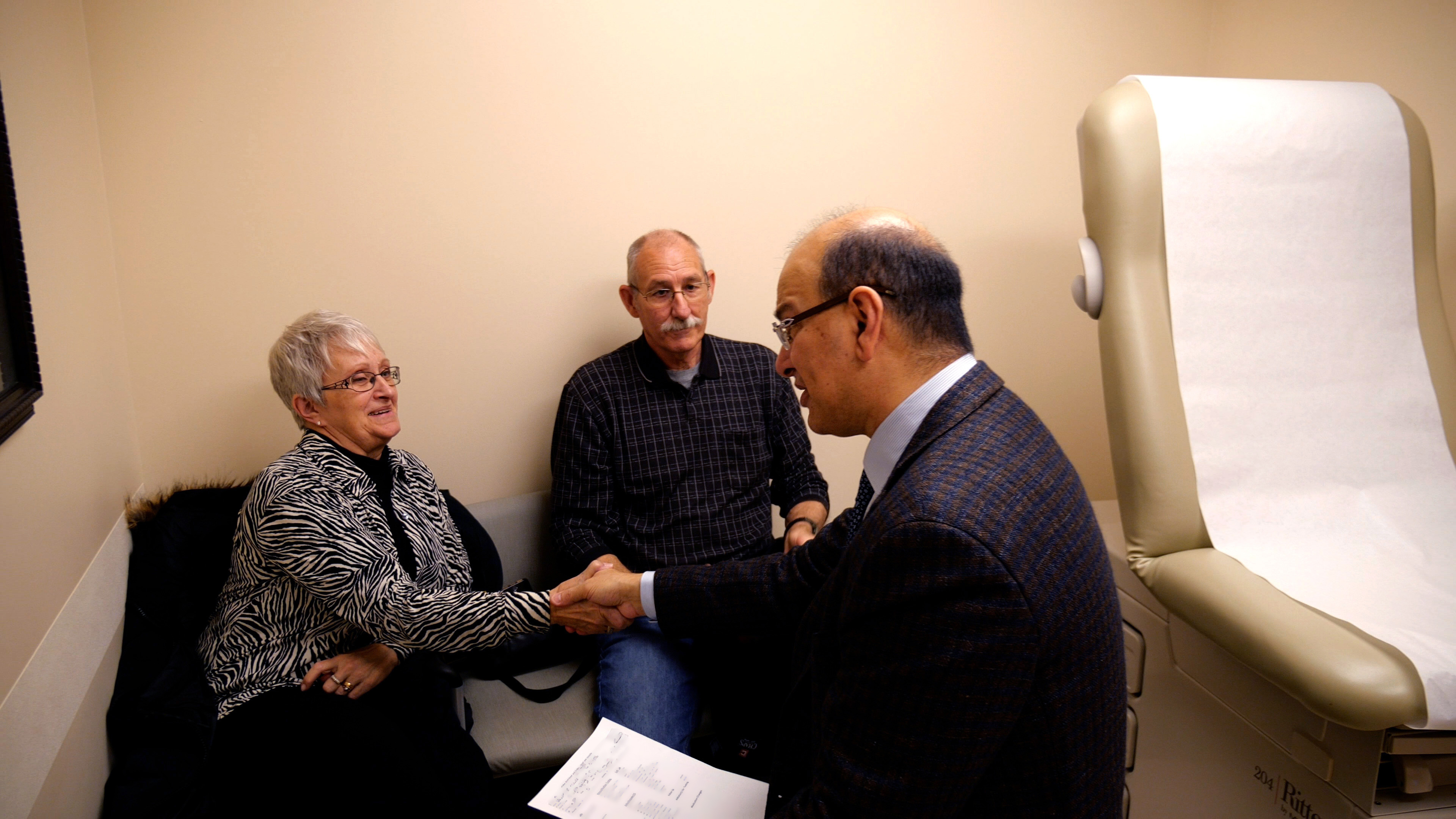
Published on April 17, 2024
Read Time: 4 Minutes
1. Go ahead. Ask questions.
Phelps Health Interventional Cardiologist Stilianos Efstratiadis, MD, FACC, FSCAI (or “Dr. E”), and Jordan Priest, DNP, FNP-BC, who specializes in family medicine, both encourage their patients to discuss any concerns they have during their visits. “I want patients to feel comfortable asking questions regarding their care,” Jordan said.
Some of the questions they wish patients would ask include the following:
• How can I quit smoking?
• How can I manage my medical conditions
between visits?
• How can I achieve a healthier life?
Dr. E advises his patients to write down their questions in a notebook because remembering everything during an appointment can be difficult sometimes.
2. We don’t make you wait on purpose.
Doctors and providers must follow many steps and ensure several tasks are finished before a patient can be seen safely.
“We attempt to stay within each patient’s appointment time slot, but unfortunately, with our many job requirements and desire to make each patient feel heard, we can become behind schedule,” Jordan said.
Providers are responsible for evaluating and treating patients, while also updating patient charts, responding to patient messages and phone calls as well as checking medication refills and lab results.
Depending on your provider’s specialty, they also may have emergencies arise, making their schedule unpredictable at times.
3. Repeating your information to different staff leads to more accurate care.
Involving different healthcare staff during your visit is important. According to Dr. E, your care team can collect more information if you discuss your concerns with multiple people.
“While we, as providers, are asking questions the nurse may have already asked, we are collecting your critical history to ensure we are making accurate diagnoses,” Jordan said. “We also may need to gather more in-depth information.”
4. Be careful getting medical advice online.
“Information shared on social media sites may not be reliable or verified,” Jordan said, warning patients to be careful when searching for medical advice online.
“Information should be obtained from a reputable site, such as Phelps Health conditions and treatments pages.” Dr. E also recommended patients visit the Mayo Clinic and Cleveland Clinic websites for helpful information that is easy to understand.
5. Ask about side effects of medications.
Dr. E and Jordan both agreed that the most important question patients should ask about their medications is, “What are the possible side effects?” “If you’re ever taking a new medication and experience an adverse (unwanted) effect, stop taking the medication and contact your provider’s office,” Jordan said.
She also recommended patients ask about 90-day prescriptions, which could reduce their trips to the pharmacy.
6. Getting a second opinion is OK.
“A second opinion maybe warranted in a patient who needs a big surgery,” said Dr. E, who noted that minimally invasive, alternative treatments are sometimes available and could potentially reduce
your recovery time.
“In family medicine, we appreciate the collaboration with specialists who can provide patients with second opinions,” Jordan said. “Phelps Health has amazing specialty providers who can further diagnose and
treat suspected diseases evaluated by your family medicine provider.”
7. Ask your provider if a test is necessary.
If your doctor or provider orders you to undergo a certain test or procedure, you should ask the reasoning behind their request.
“Having a clear understanding of the necessity and thought process behind ordering the test allows for patients to feel more comfortable and better understand the diagnosis or evaluation,” Jordan said.
8. Take notes or bring a relative or friend to your visit.
Medical information can feel overwhelming at times. That’s why Phelps Health providers suggest you either bring a notebook to write down information you receive and/or bring a friend or loved one along with you to your appointments. This person can help you remember
important information and also may ask questions that you wouldn’t think to ask, ensuring a better care experience, Jordan said.
9. Use MyChart to communicate with your provider.
Phelps Health offers the MyChart patient portal for patients to send messages to their care team. Using MyChart can cut down on missed calls and voicemail messages requesting a call back. You can still call your doctor’s office, too. “Use whatever is easier for you,” Dr. E said.
10. We want to build long-term relationships with our patients.
Establishing care with a primary care provider can help you in your long-term wellness journey. “Being treated and evaluated by the same provider allows for us to build an ongoing relationship and enables us to better diagnose and treat you,” Jordan said.
Talk With Your Provider Via MyChart
Did you know? You can communicate with your healthcare provider via the MyChart app. Send messages to your care team, request refills or schedule an appointment. Visit phelpshealth.org/mychart to learn more.